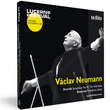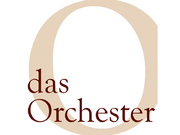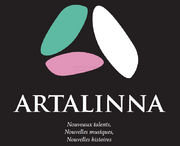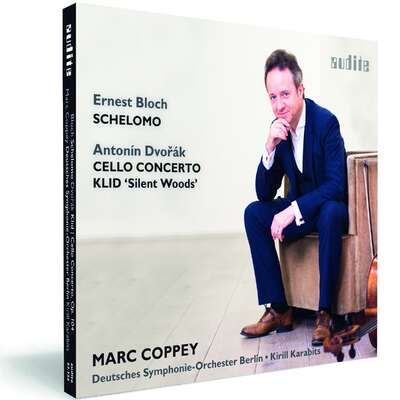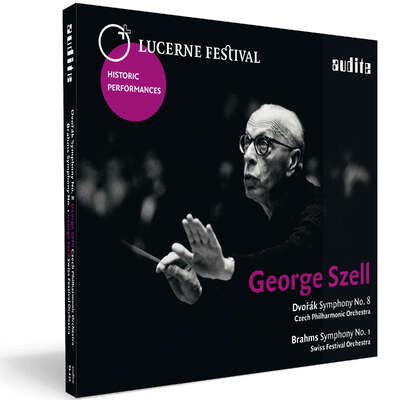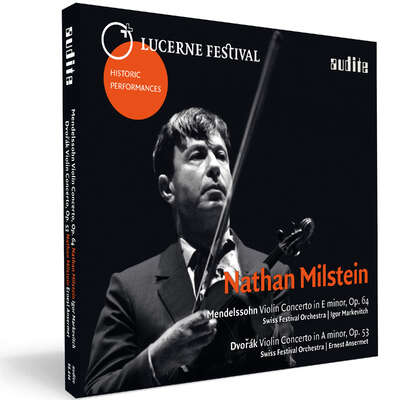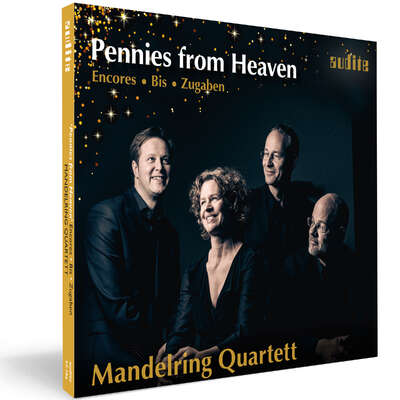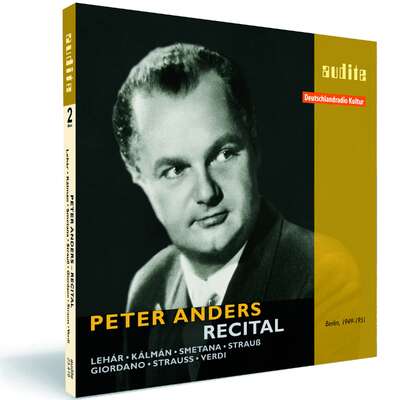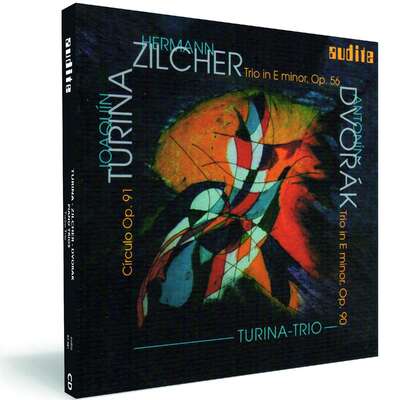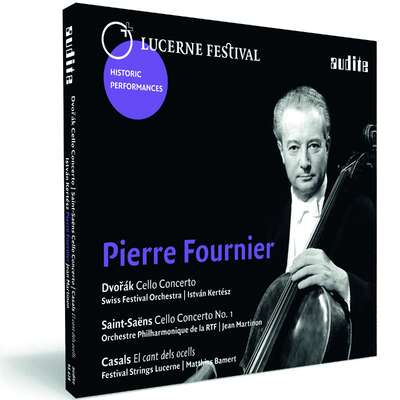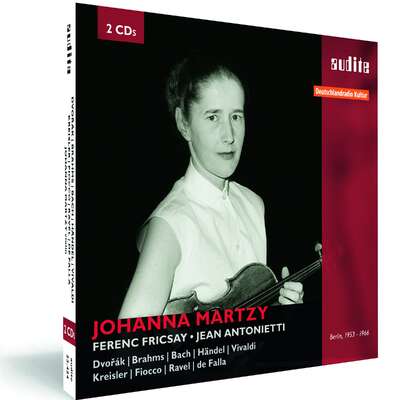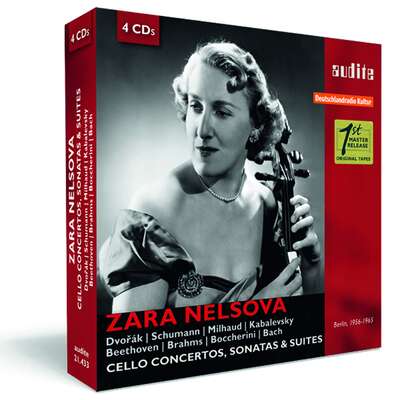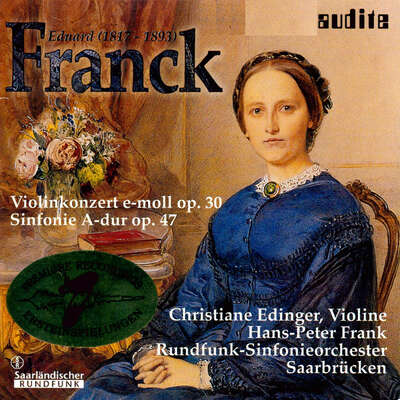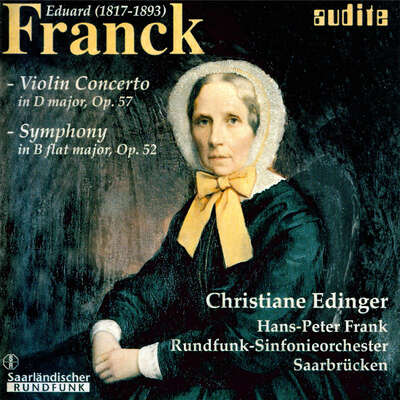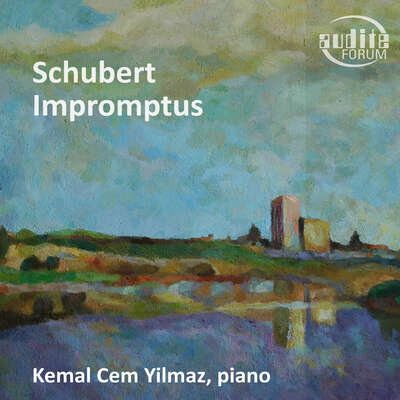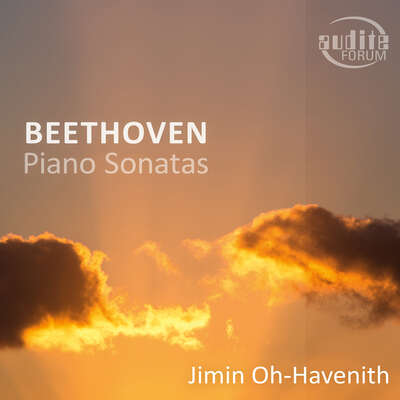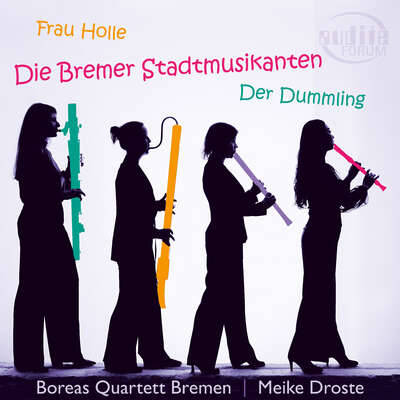
Václav Neumann was one of the most distinguished conductors of the so-called Eastern Bloc. The long-serving chief conductor of the legendary Czech Philharmonic was principally regarded as an accomplished advocate of the music of his homeland, which he interpreted with a strong sense of form, love of detail, and a vocal espressivo, eschewing any sentimentality. This is also evident in these live recordings made in Lucerne, now released for the first time. more
"The beauty of the orchestral sound, the emphasis on the melos [...], the variety of timbres, and the exemplary balance between registers make this a masterful performance." (Pizzicato)
Details
|
Václav Neumann conducts Dvořák & Smetana
LUCERNE FESTIVAL Historic Performances, Vol. 20 |
|
| article number: | 97.832 |
|---|---|
| EAN barcode: | 4022143978325 |
| price group: | BCA |
| release date: | 6. September 2024 |
| total time: | 64 min. |
Bonus Material
Informationen
Three live recordings made in Lucerne, now released for the first time, commemorate Václav Neumann, one of the most distinguished great conductors of the so-called Eastern Bloc. As chief conductor of the legendary Czech Philharmonic for many years, Neumann was principally regarded as an accomplished advocate of the music of his homeland, which he interpreted with strong sense of form, a love of detail, and a vocal espressivo, eschewing any sentimentality.
Reviews
Diapason | N° 745 - Juin 2025 | Erwan Gentric | June 1, 2025
Enregistré dans la Kunsthaus de Lucerne par Ludger Böckenhoff en août 1984 et mars 1988. Une image ample, équilibrée et homogène. Même siMehr lesen
Si Vaclav Neumann n'a pas laissé que des témoignages impérissables des vingt et une années qu'il a passées à la tête du vénérable Philharmonique tchèque, la seconde de ses intégrales (Supraphon) consacrées aux symphonies de Dvorak n'en reste pas moin un must de la discographie. Mais parce que les interprètes y abandonnent toute prudence, ce live capté à Lucerne en 1988 lors de la première première édition du festival de Pâques surclasse de loin les deux versions praguoises : un moment d'une rare évidence qui invite à boire Dvorak à même la source.
Dans une Svmphonie nº 8(1889) où les sirènes du vulgaire ont fait tourner la tête à plus d'un chef, l'objectif Neumann ne succombe jamais à l'anecdote, non plus qu'aux sophistications ou aux effets de manche. Mieux: avec la fièvre du concert, la fidélité au texte s'accompagne d'un surcroît d'audace d'où jaillit, ici dans un délicieux rubato, là dans un subtil balancement, toute la poésie primesautière et désarmante du compositeur. Sublime ! Que dire du flux intarissable de cet Allegretto grazioso ? De cet hédonisme pastoral et spirituel enchâssé dans les méditations de l'Adagio ? Et de cet Allegro liminaire qui balance entre la fraîcheur de Schumann et la noblesse de Brahms ?
Certes, le finale n'est pas un pinacle d'incandescence, mais la rigueur rythmique imprimée par le maestro sait exactement échauffer les esprits sans rien céder au pompier – une gageure. Grisés de lyrisme et de rebond dans une ivresse dont ils restent maîtres, les musiciens du Rudolfinum, conjuguant les atours de la danse et du chant, portent haut, très haut, les couleurs de la Mitteleuropa. Un miracle de spontanéité peint alla fresca, magnifié en outre par une prise de son qui en conserve toute la vigueur. Bref, une Symphonie nº 8 qui ne jurera pas aux côtés de Talich (Supraphon) ou Kubelik (DG) !
Peut-être moins mémorables, Le Pigeon des bois (1896) de Dvorak et le Prélude de Libuse (1872) de Smetana – captés au même endroit quatre ans auparavant – sont, eux aussi, d'une tenue exemplaire.
www.musicweb-international.com | January 12, 2025 | Jonathan Woolf | January 12, 2025 | source: https://musicweb...
Václav Neumann recorded two complete cycles of the Dvořák symphonies. The first, from 1971-73, can be found on Supraphon SU4090-2, an 8-CD box ofMehr lesen
Neumann’s earlier cycle is by common critical consent the superior, and with sonics to match. However, he remained a superior interpreter of Dvořák’s symphonies and this live Lucerne recording suffers little in comparison with his commercial recordings. The Czech strings are warmly textured and the winds are, as ever, characterful, Neumann unfolding the symphonic argument with natural pacing and judicious orchestral weight, whilst allowing wind counter-melodies room to breathe and phrase. Those nuanced wind choirs make their mark again in the slow movement where he cultivates a natural gravity without any over-emphasis and in the Scherzo there’s elegance as well as charm. Nothing is underplayed, though – full measure is given to the folkloric elements in the music, but they’re not exaggerated. If Neumann is sometimes seen as a middle-of-the-road conductor, maybe that’s because he was seldom prone to exaggerations of tempi, rubati or dynamics. The brass has its moment in the finale where the ‘village band’ sonorities are splendidly put across and the slow section is well integrated. This is recognisably the Neumann of the recorded legacy, less febrile than the Eighth of his great predecessor Václav Talich, though broadly similar to Kubelík, but even more to Otmar Suitner in his excellent Staatskapelle Berlin cycle.
Michael Struck-Schloen’s booklet notes, finely translated by Viola Scheffel, strike a rather militant position regarding Talich’s recording of The Wild Dove, which he claims ‘exaggerates the effect of mourning and exuberance’ in this vivid tone poem, based on a story by Karel Jaromír Erben. I can’t agree, not least in Talich’s 1954 live performance, which is only a minute fleeter than Neumann’s, but that’s a side issue. I will agree that Neumann’s reading is cogent and resourceful, that it marshals the music’s various incidents well, from the glowering opening Andante section through the village wind band thence to the darker sonorities of the ensuing sections where the music’s tragic implications are finally played out. The disc ends with Smetana’s Prelude to Libuše, his great national opera where the brass is on excellent form in its opening peroration and things continue in similar vein, the Czech Philharmonic proving redoubtable ambassadors for its country’s music.
The main question, though, is the Eighth Symphony. If you have the earlier symphonic cycle it will be of documentary interest only and if you have that box you’ll also have the tone poems. Neumann was generally a consistent artist and there are minimal discrepancies between his performances – the differences tend to focus on the sound quality of his recordings. Nevertheless, this is an attractive example of his art and is heard in fine sound.
Das Orchester | 01/2025 | Kirsten Lindenau | January 1, 2025 | source: https://dasorche...
Neumann holt alles heraus, ohne sich darin genüsslich zu wälzen – ein stimmiges Bild entsteht [...] in op. 110 [lässt er] Trauer und Variationen des Hauptthemas zu hoher atmosphärischer Dichte wachsen. [...] Eine technisch und musikalisch sehr gute Produktion und ein informatives Booklet.Mehr lesen
BBC Music Magazine | December 2024 | Andrew McGregor | December 1, 2024
From the archives
Andrew McGregor looks over this month’s reissued and live archive recordings
December round-up Václav Neumann was chief conductor of the Czech Phil for 22 years, and in 1969 this was the first orchestra from behind the IronMehr lesen
Audiophile Audition | Sep 19, 2024 | Gary Lemco | September 19, 2024 | source: https://www.auda...
Pliant and nuanced, the Czech strings, timpani, and winds converge to weave a seductive tapestry in luscious sonorities. Neumann keeps the pulse moving without exaggerated sentimentality, allowing Dvorak’s melos a natural fount in the CPO.Mehr lesen
Kulturabdruck | 14. September 2024 | Dr. Thorsten Stegemann | September 14, 2024 | source: https://www.kult... Durch und durch Tscheche
Das Album besticht nicht nur musikalisch, sondern auch durch die herausragende Klangqualität der rund vierzig Jahre alten Aufnahmen, die mit Geschick und Feingefühl restauriert wurden.Mehr lesen
www.pizzicato.lu | 06/09/2024 | Remy Franck | September 6, 2024 | source: https://www.pizz... Genuin tschechische Musik
Vaclav Neumann hatte ich Ende der Sechzigerjahre bei einem Konzert in Luxemburg kennen gelernt. Ich habe ihn als einen liebenswerten, bescheidenenMehr lesen
In der Interpretation der Achten Dvoraks verhindert Neumann, dass die Musik energetisiert wird und gibt die Partitur in einer bewundernswerten Gelassenheit wieder. Die Schönheit des Orchesterklangs, die Hervorhebung des Melos (der Gesänge und Gegengesänge), die Vielfalt der Klangfarben und die beispielhafte Ausgewogenheit zwischen den Registern machen diese Aufführung zu einer meisterhaften Interpretation.
Antonín Dvorak schrieb seine symphonische Dichtung Die Waldtaube im Jahr 1896. Sie ist inspiriert von dem gleichnamigen Gedicht aus Kyrice, einer Balladensammlung von Karel Jaromir Erben, und beschreibt die Geschichte einer Frau, die ihren Mann tötet, um einen anderen Mann zu heiraten. Kurz darauf sitzt eine Taube auf dem Grab seines Opfers und singt Tag für Tag ein trauriges Lied, das die Frau in den Selbstmord treibt.
Die Tondichtung ist sehr dramatisch und voller Leidenschaft, was in Vaclav Neumanns intensiver Interpretation sehr gut zum Ausdruck kommt. Er kann den großen dramaturgischen Bogen meisterhaft realisieren und dabei fesselnde Stimmungen schaffen.
Das Album schließt mit dem Vorspiel zu Bedrich Smetanas Oper Libuse, die sehr selten aufgeführt wird, weil sie keine wirkliche Handlung hat. Sie besteht aus drei Bildern aus dem Leben der mythischen Fürstin Libuse: der Erbstreit, die Hochzeit und das Orakel. Die Musik der Oper ist oft feierlich und glanzvoll, enthält aber auch zarte Passagen. Das resümiert die Ouvertüre sehr gut, die Vaclav Neumann spannungsvoll dirigiert.
English Translation:
I met Vaclav Neumann at a concert in Luxembourg in the late sixties. I remember him as an amiable, modest man who got warm colors and a lot of cantando out of the orchestra. The present album conveys this impression as well.
In his interpretation of Dvorak’s Eighth, Neumann avoids energizing the music and renders the score with admirable composure. The beauty of the orchestral sound, the emphasis on the melos (the chants and counter-chants), the variety of timbres, and the exemplary balance between registers make this a masterful performance.
Antonín Dvorak wrote his symphonic poem The Wood Dove in 1896, inspired by the poem of the same name from Kyrice, a collection of ballads by Karel Jaromir Erben, which describes the story of a woman who kills her husband in order to marry another man. Shortly afterwards, a dove sits on the victim’s grave and sings a sad song day after day, driving the woman to suicide.
The tone poem is very dramatic and full of passion, which is well expressed in Vaclav Neumann’s intense interpretation. He masterfully realizes the great dramatic arc and creates captivating moods.
The album closes with the prelude to Bedrich Smetana’s opera Libuse, which is very rarely performed because it has no real plot. It consists of three scenes from the life of the mythical princess Libuse: the inheritance dispute, the wedding and the oracle. The music of the opera is often solemn and glamorous, but it also contains tender passages. The overture, conducted by Vaclav Neumann, sums this up very well.
Crescendo Magazine | Le 3 septembre 2024 | Pierre-Jean Tribot | September 3, 2024 | source: https://www.cres... Václav Neumann à Lucerne
le résultat musical est de très haut vol. [...] Tous les pupitres composent un univers sonore magique par la beauté des timbres et le style d’une direction qui s'envisage comme le peintre d’une nature gorgée de teintes et de saveurs poétiques et évocatrices.Mehr lesen
Scherzo | 18/08/2024 | August 18, 2024 | source: https://scherzo.... El sello audite publica grabaciones inéditas de la Filarmónica Checa y Václav Neumann en Lucerna
El Festival de Lucerna, que arrancó el pasado 13 de agosto, lleva tiempoMehr lesen
www.artalinna.com | 20 septembre 2025 | Jean-Charles Hoffelé | source: http://www.artal... De l’autre côté du mur
Au rayon Dvořák, la Huitième Symphonie si vive, si poétique, est infiniment supérieure à son enregistrement pour Supraphon, libérant ce lyrisme, ces tendresses que le studio asséchait, mais la perle de ces captations des années 1980 reste une Colombe sauvage prodigieuse d’élan, de narration, qui pourrait tenir face à celle de Zdeněk Chalabala.Mehr lesen
